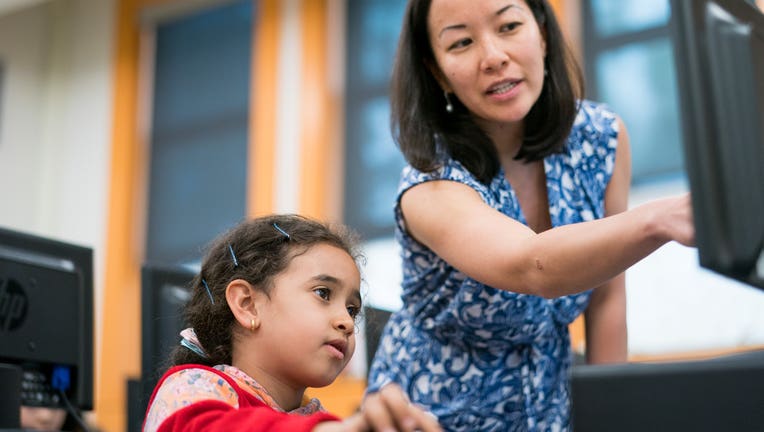SF Supervisors Committee examines school district's fall plan as distance learning resumes Monday

Photo courtesy San Francisco Unified School District.
SAN FRANCISCO - With distance learning for San Francisco Unified School District students starting on Monday, district officials and city health experts laid out plans for the fall amid COVID-19 during a hearing Friday.
Supervisor Hillary Ronen called the hearing at the Board of Supervisor's Joint City, School District, and City College Select Committee to examine the impact of COVID-19 of the upcoming school year and how distance learning will play out.
Because San Francisco remains on the state watchlist due to the high number of COVID-19 cases, school district officials said it's not clear when schools can reopen.
Last month, the city announced it would launch Community Learning Hubs, set to open on Sept. 14, to provide in-person support for as many as 6,000 disadvantaged students like low-income students, foster youth and those in English Language Learners classes. The 40 hubs throughout the city will be managed by the Department of Children, Youth and Their Families.
During the hearing, City Health Officer Dr. Thomas Aragon said the hubs are modeled after the city's summer camps, that which kept small groups of children and didn't allow mixing within groups, although COVID-19 infections did occur.
"We did have some infections over the summer and we had to do some outbreak investigations. But overall, the experience over the summer was a positive experience and we can mitigate risks, everyone needs to follow the guidelines very carefully," he said.
He added, guidelines include, "small stable cohorts, physical distancing, face coverings, hand washing, environmental disinfection. If a child is sick, do not come in. If staff is sick, do not come in. There's daily screenings to make sure people are not having symptoms."
City health officials acknowledged people are creating their own informal learning groups, and although they're not advised, health experts are hoping they'll use precautions provided in their guidelines.
"What are families are organizing on their own, especially in their own household is technically not allowed under our stay home order because we are not permitting different households to mix," said Ana Valdzic with the Department of Public Health. "We are very worried about the levels of community transmission that might occur from these kinds of learning pods or micro schools. We recognize that families are doing this anyway."
"People are very cavalier about it," said Board of Education Commissioner Alison Collins. "It seems to be me this is a significant health issue."
As for the distance-learning plan, Ronen, a parent herself, expressed frustration with what she said was the lack of consistency.
"I cannot see how this works for working parents, especially of young children. I see how it works for older children. I do not see how it works for younger children. If they do not have an adult to rely on, to help them with distance learning," Ronen said.
"Some parents working outside the home have older children who take care of the young children. So, the older children help the younger children distance learn but the older children didn't engage in the distance learning. I know people who just opted out and said 'this is pointless. I can teach my child' so they'll watch TV all day or play with their friends or go outside," she said.
"Schools being closed due to COVID is necessary for the public and is also very, very difficult for families and parents, including educators," said Susan Solomon, president of United Educators of San Francisco, which represents district teachers.
"Predictability and schedules are important to educators too. They also, many of our educators, have children of their own. Just so you know, there are going to be days when there's some flexibility around the schedule because our own educators also are dealing with the same thing our working parents are dealing with."
After several hours of presentations and questions from committee members, the committee ultimately decided to continue the hearing for two weeks.

